Politics
Plot To Impeach Gov Ambode Thickens
 A fast-paced plot is unfolding in the Lagos State chapter of the ruling All Progressives Congress (APC) to sack embattled Governor Akinwunmi Ambode before the expiration of his single term on 29 May, 2018, Saturday Tribune learnt from both pro and anti-impeachment groups in the state.The plot, which is now at an advanced stage, according to sources on both sides of the divide, is mainly being hatched by the elite in the party but being sold to the rank and file as a last-minute solution to feared defeat of the party in next year’s governorship election.Factional chairman of the state chapter of the party, Mr Fuad Oki, has warned the House of Assembly to drop its threat to impeach Governor Ambode or it would incur the wrath of Lagosians.Also, a Lagos-based civil rights movement, Save Lagos Group (SLG), said it had concluded arrangements to picket the House of Assembly next week over what it termed illegal impeachment process against Ambode, warning the Hon. Mudashiru Obasa-led Assembly against being used by those it called selfish individuals to impeach the governor.One major weapon to get the public to the pro-impeachment side, according to findings, is the raging issue of heaps of refuse in the state, which has become a major talking point with the House of Assembly directing the restricted PSP operators to resume work all over the state.The state is contracted to Visionscape for major refuse disposal engagements, while the PSP operators who hitherto had the entire space to themselves are now restricted in their operations.The “sacking” of the PSP operators had been a major contentious policy issue for the Ambode administration.On Thursday, the state legislature ordered the local service providers back to work, including areas where they had been barred by the state environmental laws, passed by the assembly.A top source in the dogfight told Saturday Tribune that the discontent of residents of the state over the challenged capacity of Visionscape to handle the refuse business is now being explored by the party elite to push their agenda through.It was learnt that after the appearance of the commissioners summoned by the state assembly, the lawmakers would launch an investigation into the payment allegedly made to Visionscape on the order of the governor, after the assembly had pronounced the foreign firm a ghost.The “accountability” probe, according to a top anti-impeachment element, will likely be spread to other contractual issues with the assembly expected to pronounce the governor guilty of misapplication of state funds, among other impeachable offences to abe listed against him.“These people (lawmakers and their patrons) are forgetting history. Is this not the same nonsense they tried with Fashola (former governor)? What came out of that process? They are inviting crisis and they would have it,” the obviously embittered party leader told Saturday Tribune.It was learnt that though all commissioners but two have deserted the governor who was stopped by the same party elite from seeking a second term in office, his camp is not planning to allow those behind the impeachment plot to have a field day or a smooth passage.“Yes, we are very aware they are planning to impeach Akin (Akinwunmi Ambode) and we are saying, let them try it. I am surprised with the way the media is allowing these people (pro-impeachment camp) to get away with impunity. Is legislative motion not mere advisory? Can they order the governor around in the name of motions?“Imagine them usurping executive function by directing PSP operators back to work.Will they pay them? Maybe those ones want to work for free. Party members are not buying their ploy and they would be shocked next year. Do they think Lagosians are fools? Because Akin went back into his shell after the charade of primaries, do they think he is a fool? Let’s wait and see. There is always a limit to nonsense like this,” the party leader told Saturday Tribune.About a
A fast-paced plot is unfolding in the Lagos State chapter of the ruling All Progressives Congress (APC) to sack embattled Governor Akinwunmi Ambode before the expiration of his single term on 29 May, 2018, Saturday Tribune learnt from both pro and anti-impeachment groups in the state.The plot, which is now at an advanced stage, according to sources on both sides of the divide, is mainly being hatched by the elite in the party but being sold to the rank and file as a last-minute solution to feared defeat of the party in next year’s governorship election.Factional chairman of the state chapter of the party, Mr Fuad Oki, has warned the House of Assembly to drop its threat to impeach Governor Ambode or it would incur the wrath of Lagosians.Also, a Lagos-based civil rights movement, Save Lagos Group (SLG), said it had concluded arrangements to picket the House of Assembly next week over what it termed illegal impeachment process against Ambode, warning the Hon. Mudashiru Obasa-led Assembly against being used by those it called selfish individuals to impeach the governor.One major weapon to get the public to the pro-impeachment side, according to findings, is the raging issue of heaps of refuse in the state, which has become a major talking point with the House of Assembly directing the restricted PSP operators to resume work all over the state.The state is contracted to Visionscape for major refuse disposal engagements, while the PSP operators who hitherto had the entire space to themselves are now restricted in their operations.The “sacking” of the PSP operators had been a major contentious policy issue for the Ambode administration.On Thursday, the state legislature ordered the local service providers back to work, including areas where they had been barred by the state environmental laws, passed by the assembly.A top source in the dogfight told Saturday Tribune that the discontent of residents of the state over the challenged capacity of Visionscape to handle the refuse business is now being explored by the party elite to push their agenda through.It was learnt that after the appearance of the commissioners summoned by the state assembly, the lawmakers would launch an investigation into the payment allegedly made to Visionscape on the order of the governor, after the assembly had pronounced the foreign firm a ghost.The “accountability” probe, according to a top anti-impeachment element, will likely be spread to other contractual issues with the assembly expected to pronounce the governor guilty of misapplication of state funds, among other impeachable offences to abe listed against him.“These people (lawmakers and their patrons) are forgetting history. Is this not the same nonsense they tried with Fashola (former governor)? What came out of that process? They are inviting crisis and they would have it,” the obviously embittered party leader told Saturday Tribune.It was learnt that though all commissioners but two have deserted the governor who was stopped by the same party elite from seeking a second term in office, his camp is not planning to allow those behind the impeachment plot to have a field day or a smooth passage.“Yes, we are very aware they are planning to impeach Akin (Akinwunmi Ambode) and we are saying, let them try it. I am surprised with the way the media is allowing these people (pro-impeachment camp) to get away with impunity. Is legislative motion not mere advisory? Can they order the governor around in the name of motions?“Imagine them usurping executive function by directing PSP operators back to work.Will they pay them? Maybe those ones want to work for free. Party members are not buying their ploy and they would be shocked next year. Do they think Lagosians are fools? Because Akin went back into his shell after the charade of primaries, do they think he is a fool? Let’s wait and see. There is always a limit to nonsense like this,” the party leader told Saturday Tribune.About a
Politics
Governor Sani Commissions 35km Road Linking 76 Communities, Longest in Kaduna Since 2004
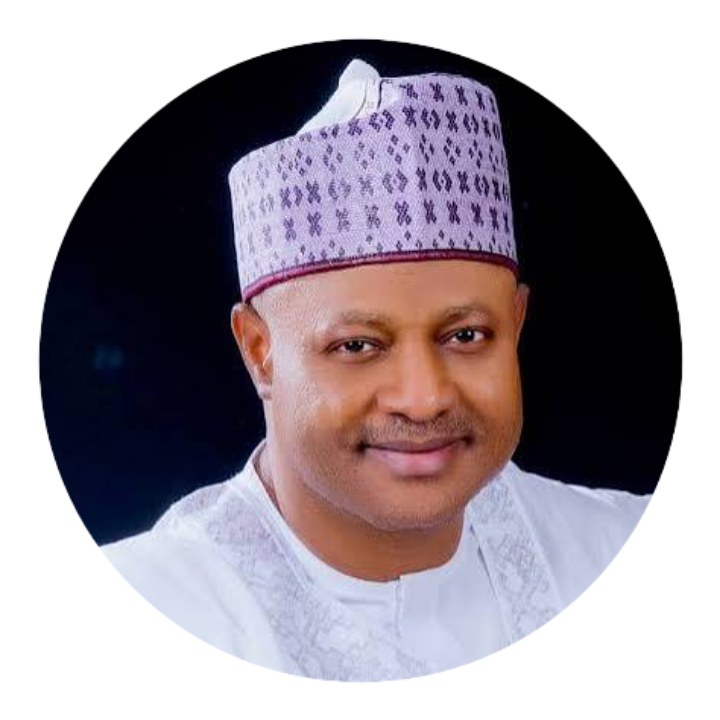
Kaduna State Governor Uba Sani has commissioned a monumental 35-kilometre asphaltic road described as the longest single infrastructure project delivered in the state over the past two decades, connecting 76 farming communities across three local government areas.
The historic road, inaugurated on Monday at a ceremony attended by traditional rulers, community leaders and residents, stretches from Gadan Gayan through Gwaraji to Kujama Junction, linking Igabi, Kajuru and Chikun local governments.
A standout feature of the project is a 130-metre bridge spanning River Kaduna, providing vital access to rural populations who had previously faced isolation during rainy seasons when the waterway became impassable.
Governor Sani characterized the infrastructure delivery as a watershed moment in Kaduna’s development trajectory, emphasizing that the project reflects his administration’s commitment to inclusive, people-centered governance that prioritizes underserved communities.
The governor recalled that when construction commenced in January 2024, his administration promised to deliver a durable and efficient transport corridor, adding that disciplined planning and professional execution ensured that pledge was fulfilled within record time.
Beyond physical mobility, the road addresses critical economic needs by creating direct linkages between agricultural production zones and commercial consumption centers across the state.
“By traversing agriculturally productive rural communities across three local government areas, this road directly links farms to markets, aggregation centers, processing facilities, and urban consumption hubs,” Governor Sani explained, noting the infrastructure would dramatically reduce post-harvest losses while strengthening agricultural value chains.
The governor highlighted that agriculture remains the leading contributor to Kaduna State’s gross domestic product growth, making rural connectivity essential for sustaining the sector’s economic dominance.
Early indicators suggest the infrastructure investment is already generating multiplier effects, with new filling stations, markets and small businesses emerging along the corridor even before formal commissioning.
“This is the quiet but powerful multiplier effect of well-planned infrastructure,” the governor remarked, pointing to the organic economic revival happening in communities previously isolated from development opportunities.
The project specifically targets historical inequities in public infrastructure distribution, particularly in Kajuru Local Government Area, which had not benefited from any road construction initiative for over twelve years prior to this administration.
“This prolonged neglect constrained economic activity, and that reality was unacceptable,” Governor Sani stated, adding that his administration is deliberately reversing decades of underinvestment in marginalized communities.
The commissioned road also provides an alternative route that reduces dependence on the frequently congested Kaduna metropolis, cutting travel time and transportation costs for commuters and traders while improving emergency response capabilities.
“Emergency services will respond faster, schoolchildren will reach classrooms with greater ease, and families will enjoy improved access to healthcare, markets and social services,” the governor noted.
Managing Director of Kaduna Road Agency Abdullahi Baba-Ahmad commended Governor Sani for executing massive infrastructure projects across the state, describing the 35-kilometre road as a landmark achievement that demonstrates commitment to delivering democratic dividends to all parts of Kaduna.
Baba-Ahmad revealed that the current administration has completed over 1,300 kilometres of roads across the state, significantly boosting commercial activities, easing travel and improving productivity.
Governor Sani explained that the commissioned road forms part of a broader infrastructure programme encompassing 140 road projects totaling 1,335 kilometres across Kaduna State, with 66 already completed while others are between 60 and 75 percent completion stages.
The infrastructure push follows an earlier achievement in May 2025 when Governor Sani broke another 20-year road construction jinx in Kagarko Local Government Area, underscoring systematic efforts to end infrastructure neglect across all parts of the state.
Traditional rulers and community leaders who spoke at the commissioning ceremony described the road as transformational, with many residents testifying about revived livelihoods, revitalized local economies and communities emerging from years of isolation with renewed confidence in government.
The project’s completion within approximately 14 months from flag-off demonstrates the administration’s capacity for rapid infrastructure delivery despite Nigeria’s challenging economic environment and budgetary constraints affecting many state governments.
News
Wole Olanipekun, Taiwo Oyedele Urge South-West Governors to Maximise Tinubu Presidency for Regional Growth
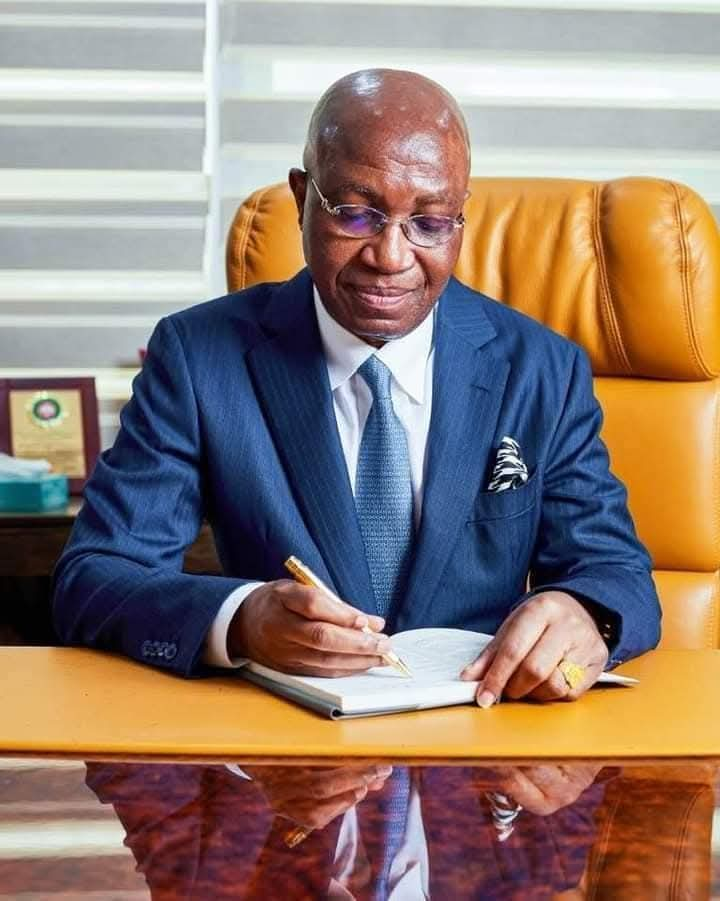
Senior Advocate of Nigeria (SAN), Wole Olanipekun, and Chairman of the Presidential Fiscal Policy and Tax Reforms Committee, Taiwo Oyedele, have called on South-West governors and political leaders to fully leverage President Bola Tinubu’s administration to drive accelerated development across the region.
The duo made the call on Monday in Akure, Ondo State capital, while speaking at a public lecture organised as part of activities marking the 50th anniversary of Ondo State’s creation.
They stressed that the South-West must prioritise massive investments in infrastructure, industrialisation, and economic reforms during Tinubu’s tenure to secure long-term regional prosperity.
Olanipekun cautioned that the political advantage of having a South-West president is temporary, noting that President Tinubu’s tenure will come to an end after his second term in 2031.
According to him, the region must act decisively within this window to strengthen its economic base and ensure sustainable development beyond the current administration.
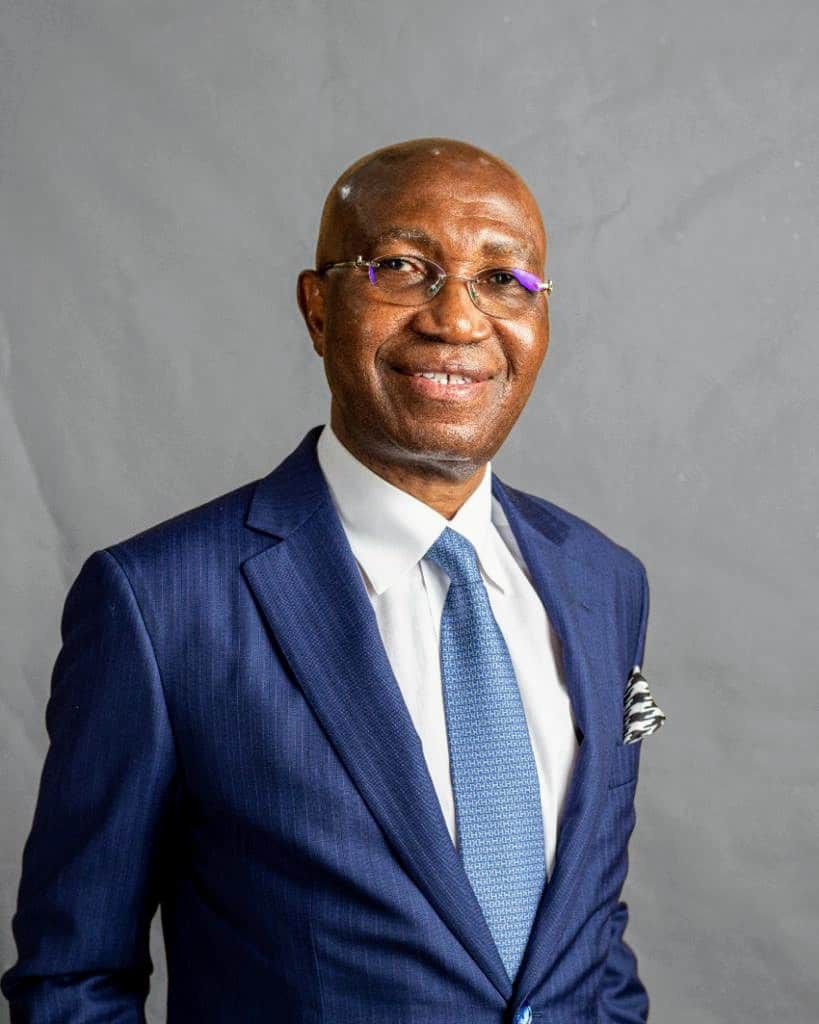
News
BREAKING: Malami Tells Court He Earned ₦12bn+ Legitimately, Seeks Release of Seized Properties
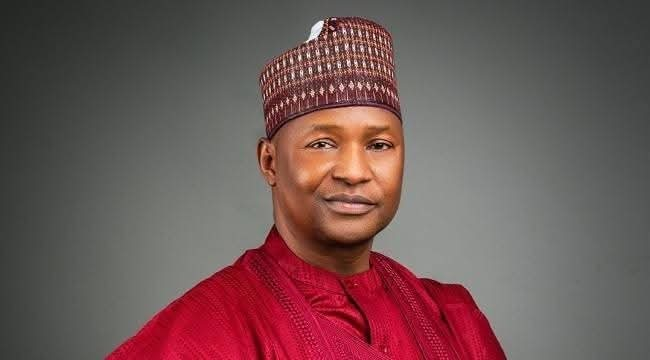
Former Attorney-General of the Federation, Abubakar Malami (SAN), has disclosed details of his earnings while asking a Federal High Court in Abuja to set aside an interim order authorising the seizure of 57 properties allegedly linked to him.
Malami made the disclosure through his counsel, Joseph Daudu (SAN), in a motion on notice filed before the court. The application seeks to vacate an interim forfeiture order affecting three of the 57 properties currently under investigation by the Economic and Financial Crimes Commission (EFCC).
According to the court filing, Malami stated that he had fully and transparently declared his sources of income in his asset declaration submitted to the Code of Conduct Bureau (CCB).
The document outlined multiple income streams, including:
₦374.63 million earned from salaries, estacodes, severance allowances, and related entitlements.
₦574.07 million generated from the disposal of personal assets.
₦10.01 billion recorded as turnover from private business ventures.
₦2.52 billion issued as loans to various businesses.
₦958 million received as traditional gifts from personal friends.
₦509.88 million realised from the launch and public presentation of his book titled “Contemporary Issues on Nigerian Law and Practice: Thorny Terrains in Traversing the Nigerian Justice Sector – My Travails and Triumphs.”
Malami’s legal team argued that the declared earnings sufficiently explain the source of funds used to acquire the properties in question, urging the court to lift the interim seizure order.
The matter remains pending before the Federal High Court as the EFCC continues its forfeiture proceedings.
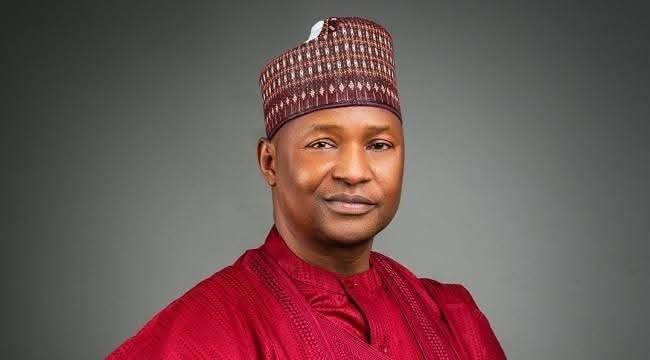
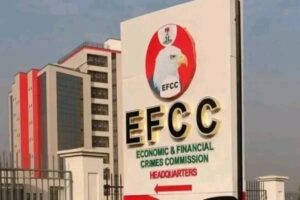
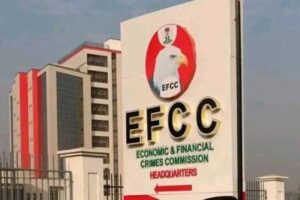
-

 News2 years ago
News2 years agoHardship: We Plan To Establish A National Commodity Board To Crash Food Prices – VP Shettima
-
News8 years ago
Blog Reader; Samson Osagiede Celebrates Fiancè Benedicta Daniels’s Birthday With Sweet Words
-
Home9 years ago
News Channel claims Donald Trump is an orphan from Pakistan,share alleged childhood photo
-
Home9 years ago
Another $175m Found in Patience Jonathan’s wife’s firm’s Bank Account
-
Home9 years ago
Oil Spillage: House of Reps Member Shares Photos of the Water her Constituents Drink .
-
Home9 years ago
Zara Buhari & Ahmed Indimi’s Wedding Access Card
-

 Sport7 years ago
Sport7 years agoModric, Marta Wins 2018 FIFA Best Player Of The Year Awards ⚽️
-
News8 years ago
The Best Video You’ve Seen Today?
